‘Death knell’ fears for Scottish culture as widespread collapse is predicted over arts funding cuts
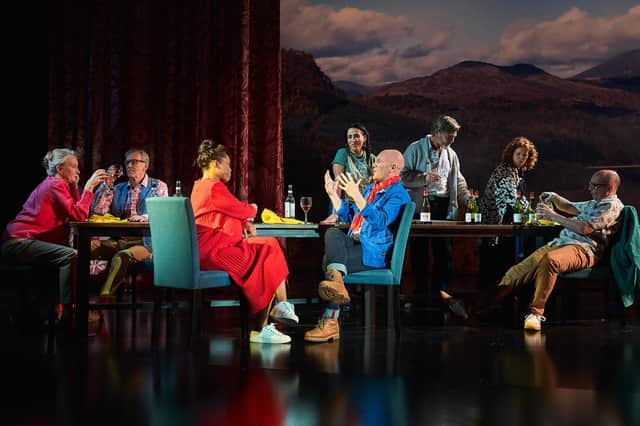

It is estimated to be worth almost £4.4 billion to Scotland’s economy and is said to support nearly 80,000 jobs.
But as the daylight hours dwindle, with every passing day the prospects for the future of the arts and creative industry are also growing darker.
Advertisement
Hide AdAdvertisement
Hide AdThis time last month it was hard to imagine that the prospects of Scottish arts could be any gloomier.
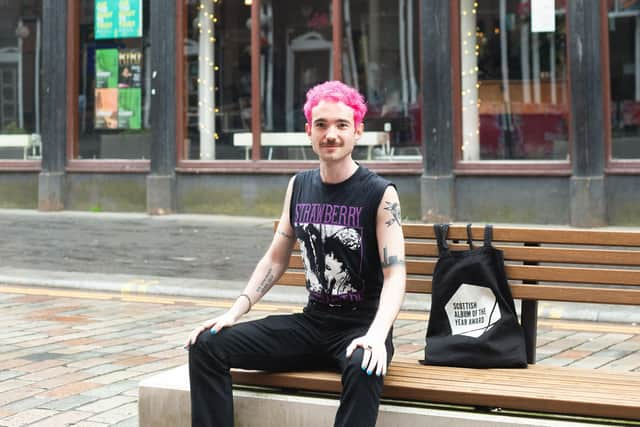

A dossier of evidence for Holyrood’s culture committee from the Scottish Government’s own arts agency was effectively a plea for urgent political intervention to save the sector.
Creative Scotland’s report set out how a “perfect storm” of factors crippling arts bodies, venues and events – which it had first raised the alarm about a year ago – had taken even more of a grip.
One in three organisations reliant on its support were said to be at “serious risk” of insolvency in the short-term, with more than 900 jobs under threat, due to a combination of prolonged standstill funding, soaring costs and reduced audiences since the pandemic.
Advertisement
Hide AdAdvertisement
Hide AdHowever Creative Scotland also drew attention to levels of demand for long-term funding it is expecting when applications close at the end of this month, around three times the amount available in its current budget, with a funding gap well in excess of £70 million.
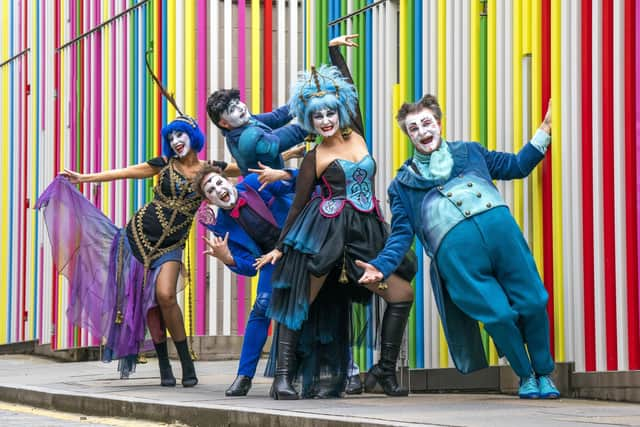

It has warned throughout this year that, given the growing impact of inflation, rising costs and the need to tackle long-standing low pay issues in the sector, it will simply not be able to support as many organisations in future without significant government intervention.
Given this backdrop, which has been a cause of growing anxiety within the cultural sector, it is easy to understand why there has been such an angry response to a government’s decision to reinstate a 10 per cent budget cut for Creative Scotland, particularly as the move overturned a key commitment to keep its budget intact following a widespread industry backlash after the prospect of a cut first emerged in the government’s budget plans in December.
Despite Creative Scotland warning that more that half the organisations it supports had been forced to use their financial reserves to stay afloat, it has effectively been ordered to do the same to make up for its £6.6m cut.
Advertisement
Hide AdAdvertisement
Hide AdSuggestions by First Minister Humza Yousaf and culture secretary Angus Robertson that this will ensure there will be “no detriment” to arts organisations as a result of the cut are strongly disputed by the arts sector. Creative Scotland’s £17m reserves pot had been entirely ringfenced to provide a safety net for organisations who lose out in the forthcoming funding process and effectively avoid the risk of insolvency.
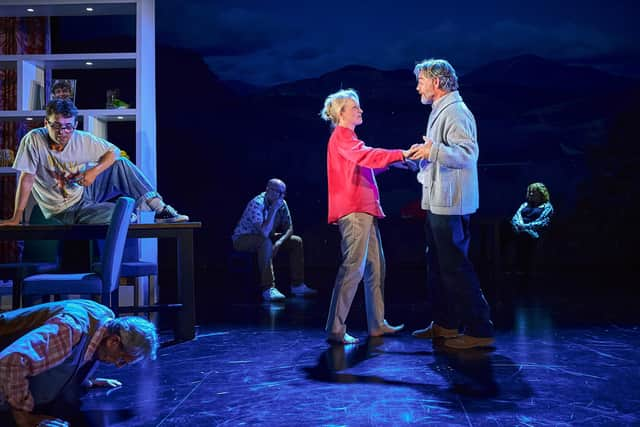

Robert Kilpatrick, chief executive of the Scottish Music Industry Association, said: “The indicative annual request to Creative Scotland was in excess of £113m – far exceeding what it expects to have available.
"Inevitably, this means that it will not be able to support as many organisations on a multi-year basis as they currently do, and the application process will be highly competitive.
"Casualties are expected and imminent. Cultural organisations across all art forms are worried about their future, and the reserves that Creative Scotland has had to use now means that there’s far less available transitional funding for unsuccessful applicants.
Advertisement
Hide AdAdvertisement
Hide Ad“Whilst the future for Scottish culture was looking bleak, there was at least some hope that organisations that are unsuccessful in securing multi-year funding would have some time to remain operational, pivot their business model and potentially find an alternative way forward.
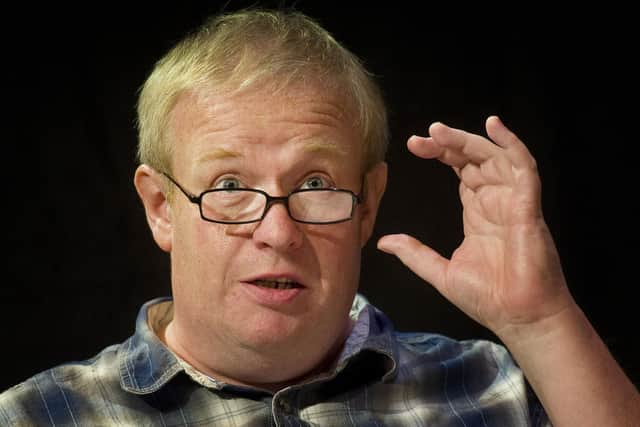

"With Creative Scotland’s reserves now depleted, many unsuccessful organisations will soon vanish from the fabric of our cultural landscape, and with them, many creative opportunities and a significant part of our cultural identity as we know it.
“The future of music and culture in Scotland is now at significant and immediate risk. The foundations upon which it is supported are being eroded at an increasingly alarming rate.”
Creative Scotland chief executive Iain Munro has insisted that dipping into its reserves to shore up the budget cut is a“one-off” measure and has warned that more than 2000 jobs could be lost across the cultural sector if the Scottish Government imposes its £6.6m cut again in the forthcoming financial year.
Advertisement
Hide AdAdvertisement
Hide AdJack Gamble, director of the Campaign for the Arts, said: “Creative Scotland’s reserves were meant to throw a lifeline to those unsuccessful in their next funding round.
This broken promise from the Scottish Government means 40 per cent of those reserves are now gone – and that will have consequences.
"Ultimately, artists, organisations, the economy and the people of Scotland will all be worse off from this decision.”
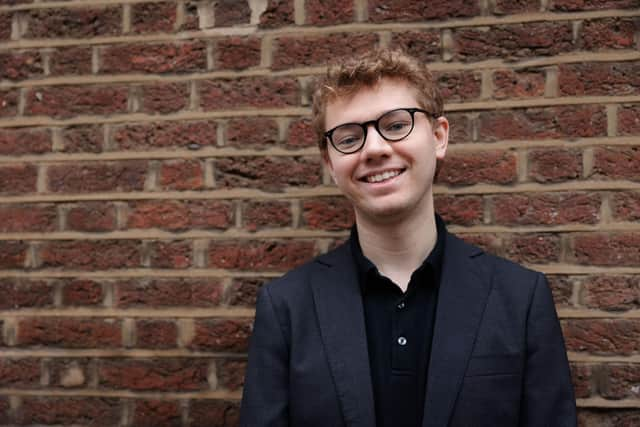

There is widespread dismay in the culture sector that Creative Scotland’s cut was reinstated weeks after leading arts organisations united to call for the Scottish Government to bring an end to prolonged standstill funding deals by increasing its overall culture and events budget by 30 per cent in the next financial year.
Advertisement
Hide AdAdvertisement
Hide AdThe move would boost the overall funding pot by around £104 million but still only represent 0.76 per cent of government spending. Creative Scotland’s current government support is said to have slipped to less than 0.1 per cent.
Author, editor and commentator Heather Parry said: “The worst thing is that this is not the crisis point. We have been in crisis for a long long time.
“Most organisations which rely on Creative Scotland funding have been on standstill funding for close to seven years, or longer.
"This amounts to a 25 per cent real terms cut, meaning these organisations are having to face skyrocketing utility bills, a cost of living crisis, the various issues around Covid, while also trying to improve access, programme widely and diversely, and pay their artists and staff something like a living wage with 25 per cent less money to achieve anything.
Advertisement
Hide AdAdvertisement
Hide Ad“Every organisation is close to breaking point and now we hear that if the £6.6m cut remains into the next budget year up to 50 per cent of regularly funded organisations will not receive funding and 2000 jobs will be lost. We are about to see a widespread and serious collapse of Scotland's cultural institutions, both big and small.
“Not just the museums and cinemas but the local festivals, the performances for people with dementia or additional needs, the indie presses and magazines, the projects supporting queer artists and artists of colour.
"On top of this, the bureaucratic nightmare of actually trying to get funding even before all this has left many people wildly burnt out. There is nothing left for anyone to give.”
Peter Arnott, one of Scotland’s leading playwrights, who is also vice-chair of the Scottish Society of Playwrights, said: “Institutions won't all survive…particularly if they have the un-Scottish effrontery to attempt to make work themselves.
Advertisement
Hide AdAdvertisement
Hide Ad“It's already nearly impossible for young people to contemplate a career in this arena. Generation after generation of freelancers will drop with exhaustion and disillusionment.
"In the arts in the old days, you had to already be rich or willing to starve, and we are heading back there.
"The biggest struggle we have with the government is to be taken seriously as an industry. We need to ask the question of whether we want professional artists living and working in Scotland. If the answer is yes, then the entire system of funding needs to be re-imagined wholesale.”
Shona McCarthy, chief executive of the Edinburgh Festival Fringe Society, warned that the Creative Scotland's budget cut could prove to be a “death knell for many parts of the cultural and creative fabric of Scotland.”
Advertisement
Hide AdAdvertisement
Hide AdShe said: “Over the last 10 years, arts funding within Scotland has been cut by over 30 per cent in real-terms.
"We fully recognise the difficult decisions that are being made across department portfolios in the current economic climate, but the arts are not simply a nice 'to do’ and cultural investment was already at the bottom of the priority list, and far below the per capita spend in other European countries.
“Funding the arts is backing social inclusion, mental health and wellbeing, job creation and the country's wider economic landscape.
"From grassroots community organisations to mega events such as Edinburgh’s festivals, standstill or reduced funding at a time when inflation is at record levels is simply not sustainable.
Advertisement
Hide AdAdvertisement
Hide Ad"The Fringe has already suffered from woeful under-investment for the scale and impact it delivers for Scotland, and for the whole performing arts sector.
"We, like so many in our sector, have no possibility of recovery from the ravages of the pandemic and an astronomical hike in costs if the right choices are not made for sustainable cultural investment, and at the very least parity when considered alongside sporting events. Scotland’s creative output, and rich cultural life, shape our identity and our place in the world.”
Campaigners seeking a complete rethink of financial support for the culture sector have set a goal of Scottish Government funding reaching one per cent of its overall spending – a key recommendation made by Holyrood’s culture committee four years ago.
The was some optimism that was on the way the following year when the Scottish Government published a long-awaited strategy for the arts which pledged to “place culture as a central consideration across all policy areas.” However progress on the blueprint for the future of Scottish culture was stalled by the Covid pandemic and its recommendations have never been taken forward.
Advertisement
Hide AdAdvertisement
Hide AdThe Culture Counts network, which represents arts organisations, festivals and attractions across Scotland, told Holyrood’s culture committee that Scotland has slipped to 28th out of 34 countries in Europe when it comes to arts funding per head. It has urged the Scottish Government to commit to take “decisive action” by committing to a 30 per cent increase in its overall culture budget, suggesting that an injection of £104 million next year would “halt the decline and go some way towards securing Scotland’s place as a cultural world leader and unlock enormous benefits for Scotland’s society and economy.”
Speaking at the culture committee, Mr Robertson said: “I entirely acknowledge the evidence that has been given that there is a wish for culture to receive additional funding and, if I am able to secure additional funding for culture, that is exactly what I would like to happen.
“However, we also need to approach the funding and support of culture in other ways so, if it is possible for us to help in terms of commercial income to the cultural sector, we need to do provide that help and, if it is possible to secure additional support from philanthropy, we need to ensure that that is done, too.
“Right across the piece, we are focused on making absolutely sure that the government provides the maximum funding that we are able to secure.”
Advertisement
Hide AdAdvertisement
Hide AdHowever Culture Counts director Lori Anderson said: “No indication of the funding settlement for 24-25 has been revealed yet.
"Creative Scotland’s reserves were accrued for the specific purpose of supporting organisations who are unsuccessful in their application to the new multi-Year funding programme to transition. There will now be £6.6m less funding available for that purpose.
“We urge the Scottish Government to honour the commitment made by the First Minister and Culture Secretay Angus Robertson to reverse the cut in the 2024/25 budget.
“However, replacing this sum will only take the budgets back to standstill levels, but with lower reserves. This means that all the financial challenges facing the sector in Scotland, as set out over the past year in parliamentary submissions, Committee hearings, and in public facing communications, remain very real.
Advertisement
Hide AdAdvertisement
Hide Ad"We urge the Scottish Government to recognise the value and impacts of the culture sector, that it too has a workforce that has been experiencing consistently low and static pay levels and a freelance sector that is particularly precarious and vulnerable.”
A Creative Scotland spokesman said: “There is relief in the culture sector that we’ve made lottery reserves available to compensate for the £6.6m in-year reduction in our budget.
“We welcome the commitment given by the Cabinet Secretary and the First Minister that the £6.6m will be restored in our 2024-25 budget.
"However, this means flatline funding and will take Creative Scotland’s budget for regular funding back to the same level it’s been for the past five years, only now with much reduced lottery reserves to draw on for other important parts of our work.
Advertisement
Hide AdAdvertisement
Hide Ad“We remain very concerned about the extreme financial challenges the culture sector is experiencing, which increasingly risk a future where there are fewer cultural organisations, fewer jobs, less art and creativity for Scotland’s people and communities, and a damaged international reputation as a creative nation.
"This has been clearly set out by Creative Scotland and by people in the sector who are reporting a bleak future for culture in Scotland unless additional funding is made available.
"Funding for culture is a tiny percentage of overall Scottish Government budgets, so we will continue to advocate for a level of support which better reflects the value culture and creativity contribute to our lives, our communities, our economy, and our international reputation.”
Comment Guidelines
National World encourages reader discussion on our stories. User feedback, insights and back-and-forth exchanges add a rich layer of context to reporting. Please review our Community Guidelines before commenting.
